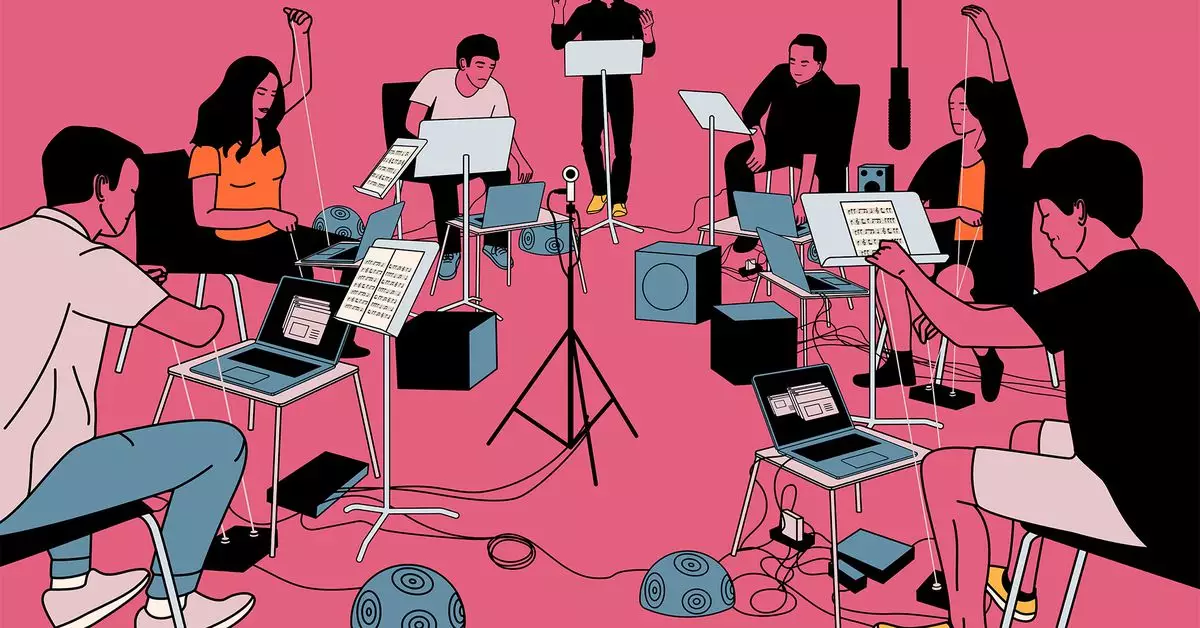In the rapidly evolving landscape of technology and music, Ge Wang stands out as a pivotal figure. As an associate professor at Stanford’s Center for Computer Research in Music and Acoustics, he approaches the intersection of sound and computation with a perspective that diverges from traditional practices. Wang doesn’t just create music; he engages with the concept of “computer music,” where the very architecture of creation merges with innovative technology. Alongside managing the distinguished Laptop Orchestra at Stanford, his contributions to the development of creative tools, such as the programming language Chuck, have forever altered how musicians interact with their craft.
Rather than treating technology as a vessel for reproducing music, Wang encourages his students to engage it as a medium for exploration and play. This shift in mentality reframes the learning process from a quest for mastery to a journey of discovery, enabling artists to utilize technology in a more organic and experimental fashion.
The discussion surrounding artificial intelligence (AI) and its effects on creativity has become increasingly urgent, especially in recent years. In a recent episode of The Vergecast, Wang explores the implications of these advanced technologies on artistic expression. He challenges the notion that efficiency should be the primary goal of creativity; instead, he poses deeper philosophical questions: What does it mean to be human in a world increasingly dominated by technology designed to streamline our efforts? Can we safeguard the essence of what makes our creative endeavors human?
Wang’s insights compel us to reconsider the relationship between creativity, technology, and individuality. While advancements offer incredible tools that enhance productivity, they simultaneously pose existential questions about the value of struggle and the virtues of craftsmanship. If we lean too heavily on convenience, could we risk losing the richness of the creative process?
As Wang’s conversation weaves through the complexities of these technological challenges, it evokes profound reflections on the nature of creativity itself. In a world saturated with tools promising effortless outcomes—from writing software that assists in drafting emails to AI that can compose symphonies—the core question remains: What is the ultimate purpose of these advancements? Is the goal merely to make creation easier, or is it to foster a deeper understanding and appreciation of the creative journey?
In a future where capabilities can be replicated and perfected by machines, preserving the human touch becomes more essential than ever. The intrinsic value derived from the challenges faced during the creative process might be what truly defines our humanity. As creators, Wang advocates for a playful dialogue with technology, suggesting that the key to finding balance lies not in the elimination of effort but in embracing and reinterpreting it through new mediums.
Wang’s perspectives illuminate the path ahead for artists and technologists alike. By encouraging exploration rather than mastery, and by valuing the nuances of the creative experience, we can create a future where both human creativity and technology coexist harmoniously. In this ongoing dialogue, we invite the question: What role do we wish to carve for ourselves in artistically rich landscapes shaped by these powerful tools? True creativity may not hinge on simplicity but, rather, on the complexity of our interactions with the world around us.


Leave a Reply